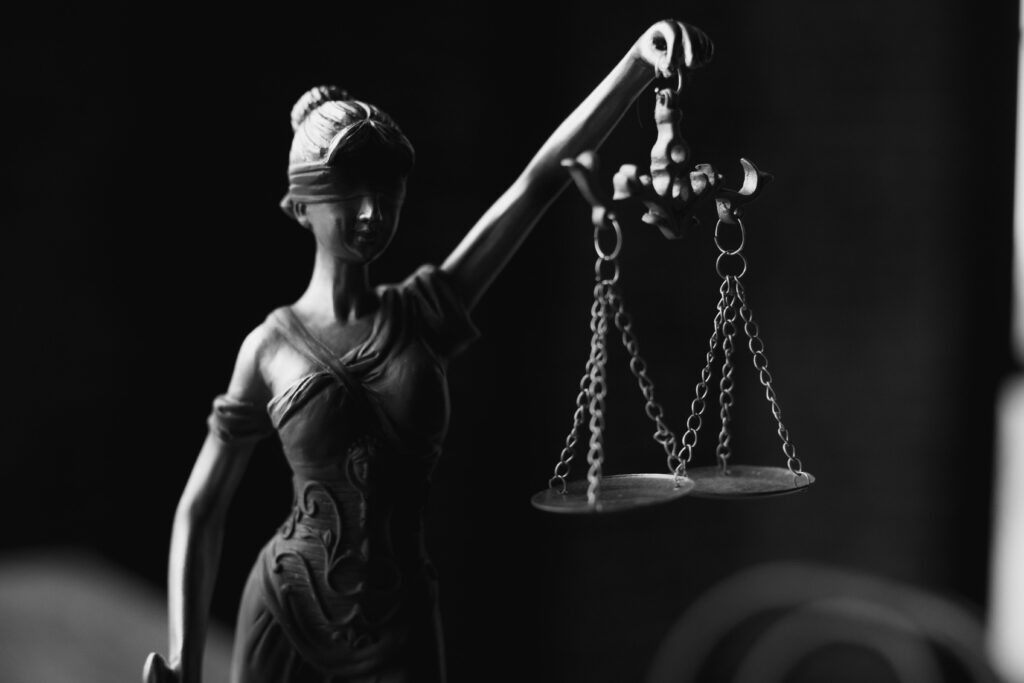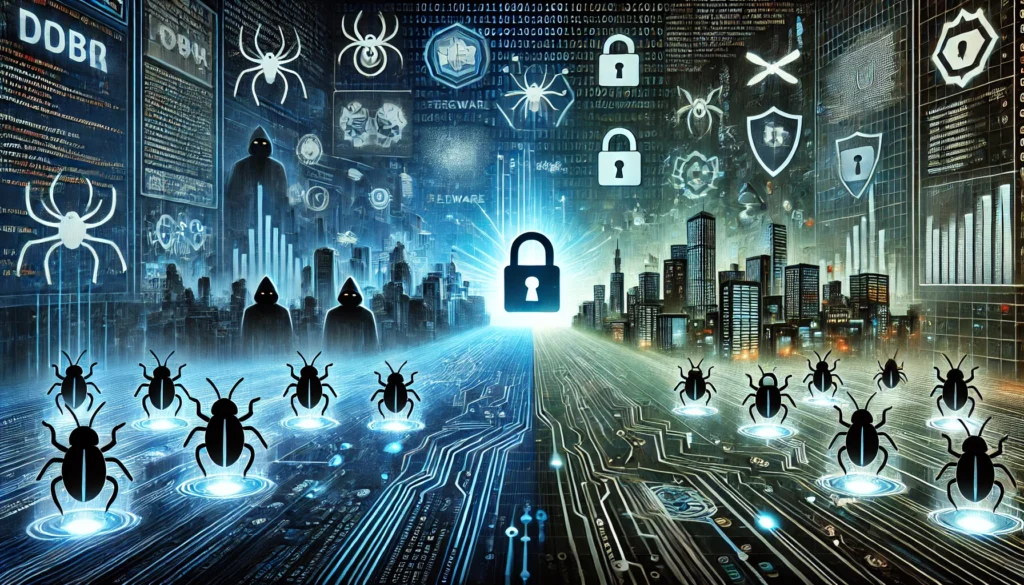Published On: August 23rd 2025
By: Fatima Omer Abdelaziz Abdalla
Cairo University, Egypt
Introduction
The year is 2005, and The UN Security Council has adopted Resolution 1593, referring the situation in Darfur, Sudan, to the International Criminal Court (ICC)—marking the first time the Council invoked Article 13(b) of the Rome Statute.[1] This move empowered the ICC to exercise jurisdiction over crimes committed in a non-State Party, Sudan, through the authority granted under Chapter VII of the UN Charter.[2] Now, on the 20th anniversary of this landmark decision, I reflect on what this referral has revealed—not only about international justice, but about the structural imbalances embedded within it. In particular, I argue that the Security Council’s ability to influence the Court’s jurisdiction, along with the prosecutorial discretion exercised in politically sensitive cases, have fueled persistent criticisms of selectivity in the ICC’s operation—especially from African states and scholars in the Global South.
Structural Imbalances in Security Council Referrals
Under Article 13(b) of the Rome Statute, the ICC can exercise jurisdiction over crimes referred to it by the UN Security Council, even if they occur in states not party to the Statute.[3] Resolution 1593 thus expanded the Court’s reach to Darfur through Chapter VII authority.[4] However, this mechanism remains structurally imbalanced: only Security Council members—especially the five permanent members with veto power—can initiate such referrals, granting a disproportionate role to powerful states, some of whom (such as the US, China, and Russia) are not themselves parties to the Rome Statute.[5] This asymmetry has generated criticism that international criminal law is selectively enforced.[6]
This imbalance is not just theoretical; it has tangible consequences on whose actions are scrutinized and whose are ignored. The ability to shield certain states from investigation, while others are exposed to it, contributes to a perception that the ICC functions less as a universal court of justice and more as an instrument that reinforces existing power asymmetries in the global order.
Scholars such as Dapo Akande have questioned whether such referrals risk politicizing the Court by embedding it within the geopolitical dynamics of the Security Council.[7] TWAIL scholars and critical legal theorists further argue that these structures reflect a colonial legacy where law operates as a tool of global power, not neutral justice. As Sundhya Pahuja notes, such legal architectures sustain global hierarchies under the guise of universality.[8]
Prosecutorial Discretion in Politically Sensitive Cases
The Office of the Prosecutor (OTP) at the ICC wields significant legal and strategic discretion, including the power to decide when to initiate investigations, whom to charge, and which situations to prioritize.[9] Such discretion becomes especially consequential in politically sensitive cases like Darfur. Under Prosecutor Moreno‑Ocampo, the ICC pursued only African heads of state—beginning with Omar al‑Bashir—while avoiding comparable figures from powerful Western or non‑State Party contexts.
This pattern raised early questions about whether the Court’s prosecutorial strategy was disproportionately shaped by political feasibility rather than a consistent application of international criminal law. The near-exclusive focus on Africa, especially at the early stages of the ICC’s development, made it difficult for the Court to shake off criticisms of bias, despite its formal commitment to neutrality.
As Meshack Korir Lomoywara explains, prosecutorial discretion operates with limited oversight and immense latitude, especially in interpreting thresholds such as “sufficient gravity.”[10] This flexibility, while arguably necessary, also enables bias—allowing non-legal and political considerations to shape judicial outcomes. Lomoywara argues that in contexts such as Kenya, this discretionary latitude—operating without adequate institutional oversight—can erode the legitimacy of the Court and reinforce perceptions of bias.[11]
The African Union has echoed this concern, issuing a formal decision in 2015 decrying the ICC’s focus on African leaders while remaining silent on alleged crimes elsewhere.[12] The AU warned that the Court was “no longer serving the interests of justice and accountability in Africa,” underscoring how prosecutorial discretion can produce institutional disillusionment.
Persistent Criticisms of Selectivity
Over the past two decades, criticism of the ICC’s selective enforcement has mounted. African states, in particular, have pointed to the Court’s focus on the continent—despite serious crimes committed elsewhere—as indicative of a double standard. The Southern African Litigation Centre has documented cases like Bashir’s 2015 visit to South Africa, where the state’s decision not to arrest him exposed regional tensions with the ICC.[13]
Scholars such as Kamari Clarke and Makau Mutua have noted that the ICC’s image has suffered due to its apparent failure to indict actors from powerful states, reinforcing a hierarchy of accountability.[14] Mutua’s “Savages, Victims, and Saviors” framework critiques the human rights narrative embedded in international law as one that infantilizes the Global South while upholding the moral superiority of the West.[15]
These frameworks underscore the degree to which legitimacy is not only about enforcement, but about narrative control—whose stories are prioritized, and whose suffering is acknowledged. When this narrative appears one-sided, it erodes the Court’s credibility in the eyes of marginalized communities.
Moreover, Samir Amin’s theory of Eurocentrism offers a useful analytical lens: he argues that international systems often universalize European experiences and values while marginalizing others.[16] The ICC, rooted in liberal legalism and constructed within Western institutional frameworks, reflects this legacy. These critiques do not seek to dismantle international criminal law but rather to democratize it—to ensure the system holds all actors accountable, regardless of geography or power.[17]
Conclusion: Reimagining Justice—From Selectivity to Structural Change
Twenty years after the Darfur referral, the legitimacy crisis facing the ICC is not merely a question of perception, but a consequence of unresolved structural design. The criticisms that have shadowed the Court—particularly those coming from the African continent and Global South scholars—underscore a simple truth: international criminal justice cannot operate credibly in a system where enforcement is shaped by the geopolitical interests of a few powerful states, while accountability is largely imposed on weaker ones.
In confronting this imbalance, several legal scholars and political actors from the Global South have proposed moving beyond critiques of selectivity toward a transformative vision of global justice—one rooted in equity, historical accountability, and structural reform. A growing number of voices argue that true universality cannot be achieved unless the substantive definitions of international crimes themselves evolve to reflect the lived experiences and historical traumas of formerly colonized nations.
A particularly compelling proposal is to recognize colonialism and colonial-like practices as crimes under international law. Scholars such as Makau Mutua, Sundhya Pahuja, and Samir Amin have long argued that the foundations of modern international law rest on a history of conquest and domination. Amin critiques Eurocentrism as a worldview that not only legitimized imperial violence but continues to shape institutions in ways that normalize Western legal and moral norms as universal.[18]
Proposals have included codifying systemic and enduring harms—such as land dispossession, resource extraction, racial apartheid, and cultural erasure—as international crimes. These are not hypothetical abstractions; they are the legacy of European colonial rule across Africa, Asia, and Latin America. Incorporating such crimes would be more than symbolic—it would represent a redistribution of moral authority, one that recognizes the violence embedded not only in armed conflict, but in the ongoing afterlives of colonialism.
Operationally, this reform would require an amendment to the Rome Statute—a challenging but not impossible task. The Global South, through blocs such as the African Union or regional coalitions, could mobilize legal innovation to push for a formal reevaluation of what counts as “international crime.” As current definitions stand, international law continues to marginalize the historical suffering of formerly colonized peoples, while focusing almost exclusively on individual perpetrators from the Global South. This double standard undermines both the legitimacy and moral authority of the Court.
Moreover, any such expansion must go hand-in-hand with institutional reforms that address the political economy of justice delivery. The Security Council’s referral mechanism should be subject to legal limitations or oversight to prevent selective activation. Prosecutorial discretion should be exercised with publicly transparent guidelines that acknowledge the global power dynamics at play. Civil society actors—particularly from the Global South—must be given greater participatory power in shaping investigatory priorities and pushing for victim-centered accountability.
Reform, however, is not only institutional—it is also narrative. A reimagined ICC must tell a different story of justice: one that does not begin and end with conflict zones in the Global South, but that interrogates the systemic production of violence through economic domination, environmental destruction, militarization, and cultural erasure. Until that shift occurs, the Court will remain vulnerable to the accusation that it is not a truly global institution, but a selective tribunal of power dressed in the robes of universality.
As we mark the 20th anniversary of the Darfur referral—once hailed as a milestone for accountability—we are confronted with the limits of that moment. It revealed not just the capacity of the ICC to prosecute atrocity crimes, but also its inability to transcend the geopolitical inequities that gave rise to those crimes in the first place. Justice, if it is to be truly international, must be decolonized. It must be inclusive not just in scope, but in imagination, definition, and enforcement.
References
[1] UN Security Council Resolution 1593 (31 March 2005) UN Doc S/RES/1593.
[2] Rome Statute of the International Criminal Court, art 13(b).
[3] Rome Statute of the International Criminal Court, art 13(b).
[4] UN Security Council, Voting Summary on Resolution 1593 (31 March 2005) UN Doc S/PV.5158.
[5] ‘The States Parties to the Rome Statute’, International Criminal Court, https://asp.icc-cpi.int/states-parties
[6] Sundhya Pahuja, Decolonising International Law: Development, Economic Growth and the Politics of Universality (Cambridge University Press 2011).
[7] Dapo Akande, ‘The Legal Nature of Security Council Referrals to the ICC’ (2009) 7(2) Journal of International Criminal Justice 333.
[8] Pahuja (n 6).
[9] Rome Statute of the International Criminal Court, art 15.
[10] Meshack Korir Lomoywara, ‘Examining Prosecutorial Discretion within the International Criminal Court (ICC) and Its Implications on Kenyan Cases’ (2017) 7(8) International Journal of Humanities and Social Science 120 https://www.ijhssnet.com/journals/Vol_7_No_8_August_2017/14.pdf.
[11] Lomoywara (n 10) 121.
[12] African Union, Decision on Africa’s Relationship with the International Criminal Court, Assembly/AU/Dec.547(XXIV) (30–31 January 2015), Addis Ababa.
[13] Southern African Litigation Centre, ‘Bashir’s Escape from South Africa: How it Happened’ (SALC Briefing Paper, 2015).
[14] Kamari Maxine Clarke, ‘Is the ICC Targeting Africa Inappropriately?’ (ICC Forum, UCLA School of Law, 2010).
[15] Makau Mutua, ‘Savages, Victims, and Saviors: The Metaphor of Human Rights’ (2001) 42(1) Harvard International Law Journal 201.
[16] Samir Amin, Eurocentrism (2nd edn, Monthly Review Press 2009).
[17] Prabhakar Singh and Benoît Mayer (eds), Critical International Law: Postrealism, Postcolonialism, and Transnationalism (Oxford University Press 2022).
[18] Amin (n 16).




